The conference kicked off with welcome remarks from Committee of 100 Interim President Cindy Tsai, and Conference Chair Peter Young and Chair Gary Locke, highlighting the importance of coming together to focus on the key issues facing the Chinese American community today.
Cindy Tsai
Peter Young
Ambassador Gary Locke
The opening debate featured Professors Elaine Chiu and Jed Rubenfeld with Committee of 100 Member Buck Gee and was moderated by Peter Young. The three panelists offered different viewpoints on “Will and Should Corporate DEI Activities Suffer the Same Fate as Affirmative Action?”
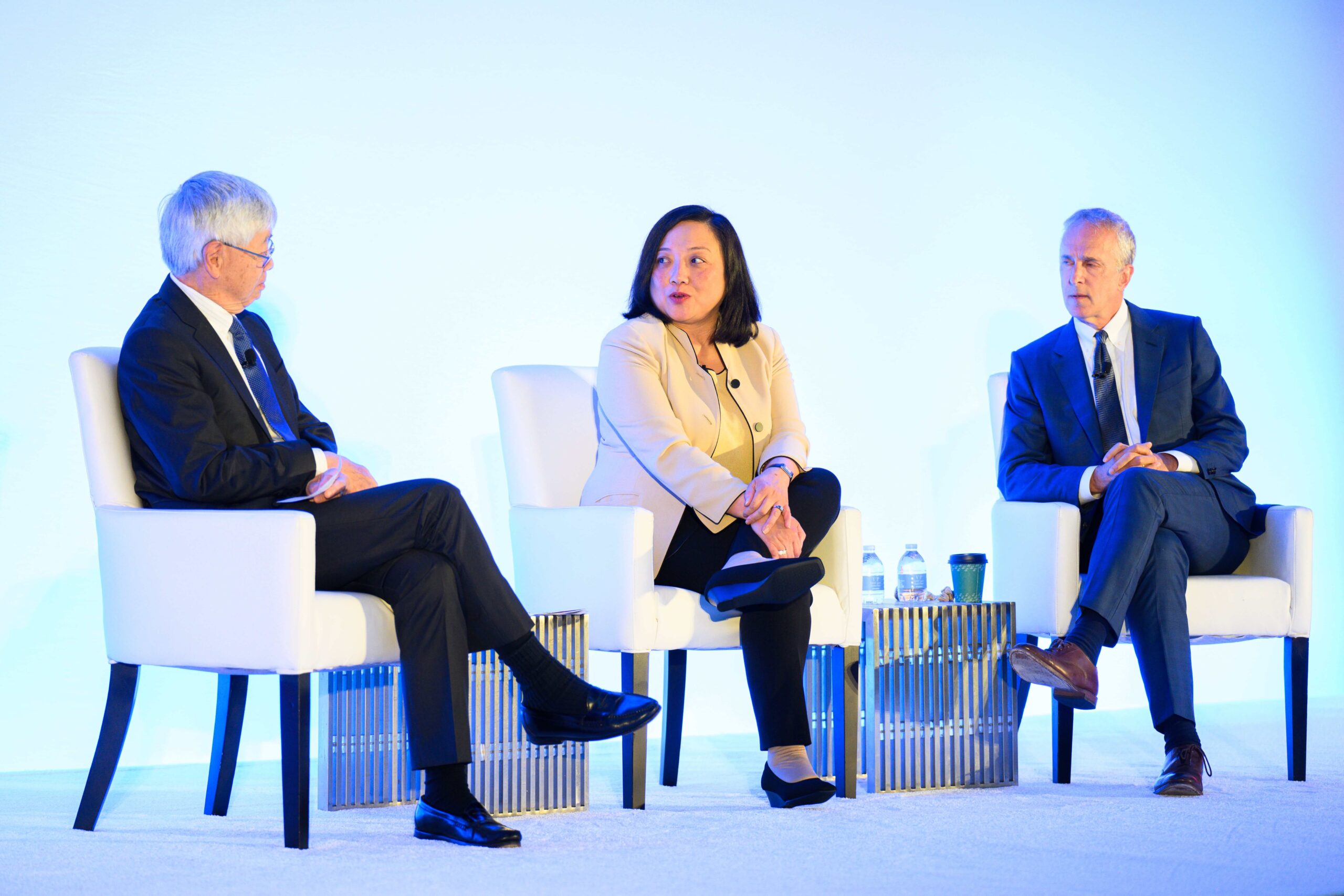 (left to right) Buck Gee, Elaine Chiu, Jed Rubenfeld
(left to right) Buck Gee, Elaine Chiu, Jed Rubenfeld
Following the main stage debate, attendees joined either the Asian American Issues track, or the U.S.-China Issues track where panels discussed topics from politics and economics to social issues and education.
Asian American Issues Track (Morning)
U.S. National Defense Policies – Impact on Asian Americans and U.S. Competitiveness
This panel was moderated by Brian Sun, Committee of 100 Member and Partner, Norton Rose Fulbright, with participants Shan-Lu Liu, MD, PhD, Professor and Program Director, The Ohio State University; Jill Murphy, Deputy Assistant Director, Counterintelligence Division, Federal Bureau of Investigations; and David Zweig, PhD, Professor Emeritus, Hong Kong University of Science and Technology.
The panel discussed some of the unintended negative consequences of U.S. national defense policies particularly those that have adversely affected the U.S. scientific and Chinese American communities. The panelists also offered insights on strengthening U.S. technological leadership while fostering an inclusive, innovative, and supportive environment.
AAPI Community Response to Rising Anti-Asian Hostility
This panel was moderated by Committee of 100 Interim President Cindy Tsai, with panel members Edgar Chen, Special Policy Advisor, National Asian Pacific American Bar Association; Jennifer H. Wu, Founding Partner, Groombridge, Wu, Baughman & Stone LLP; and Frank Wu, Committee of 100 Member and President, Queens College.
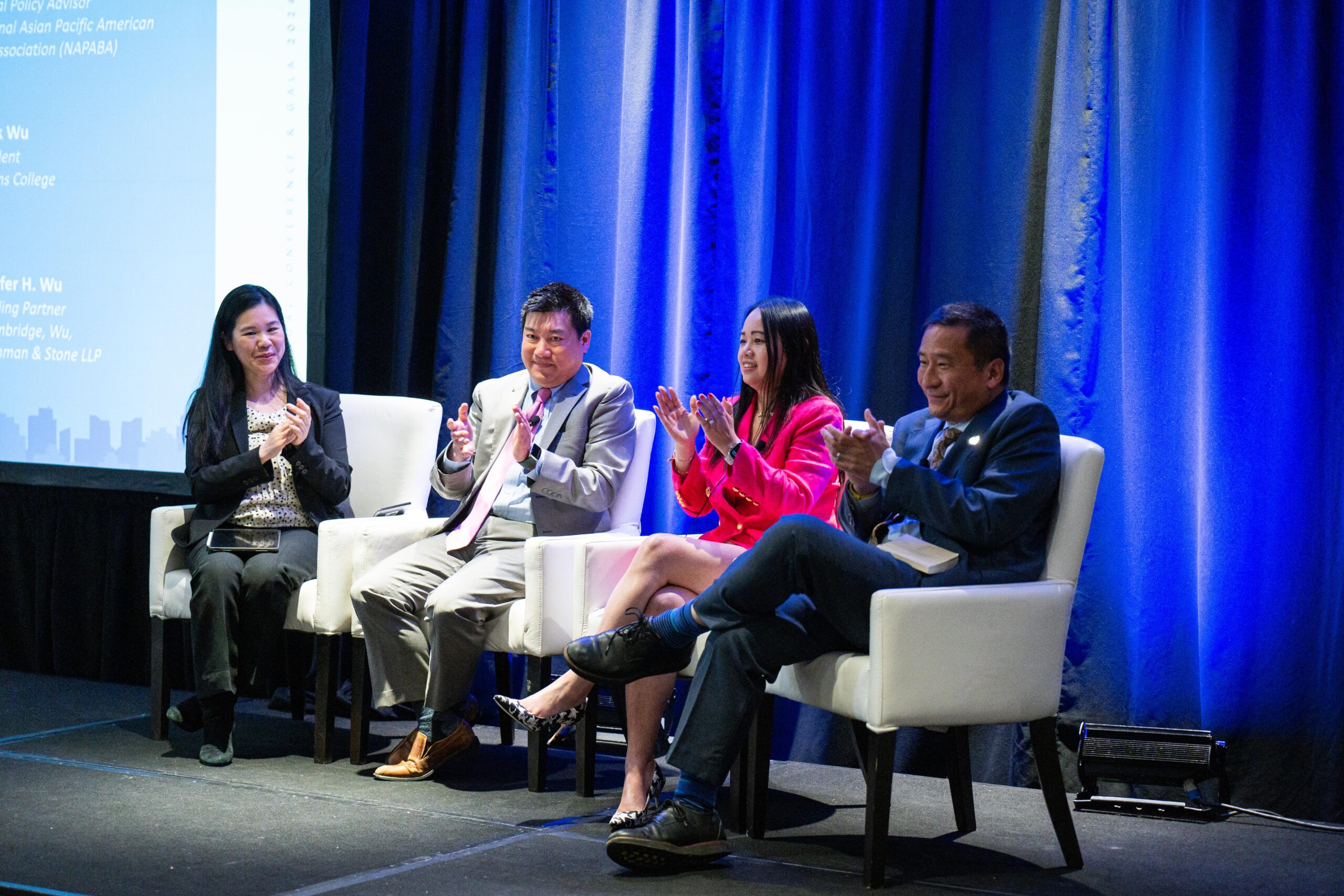 (left to right) Cindy Tsai, Edgar Chen, Jennifer H. Wu, Frank Wu
(left to right) Cindy Tsai, Edgar Chen, Jennifer H. Wu, Frank Wu
Before the panel discussion, Jeremy Wu, PhD, Committee of 100 Member and Founder & Co-Organizer, APA Justice, delivered a presentation on the history of xenophobia and racism directed at the Chinese American community here in the U.S. After the presentation, the panel discussed how community members and leaders are mobilizing to address discriminatory attacks on the AAPI community, such as anti-Asian hate incidents and property ownership restrictions based on ethnicity and divisive rhetoric. The panelists shared their experiences, discussed actionable steps that the AAPI community and its allies have taken, and explored potential future strategies to confront these xenophobic challenges.
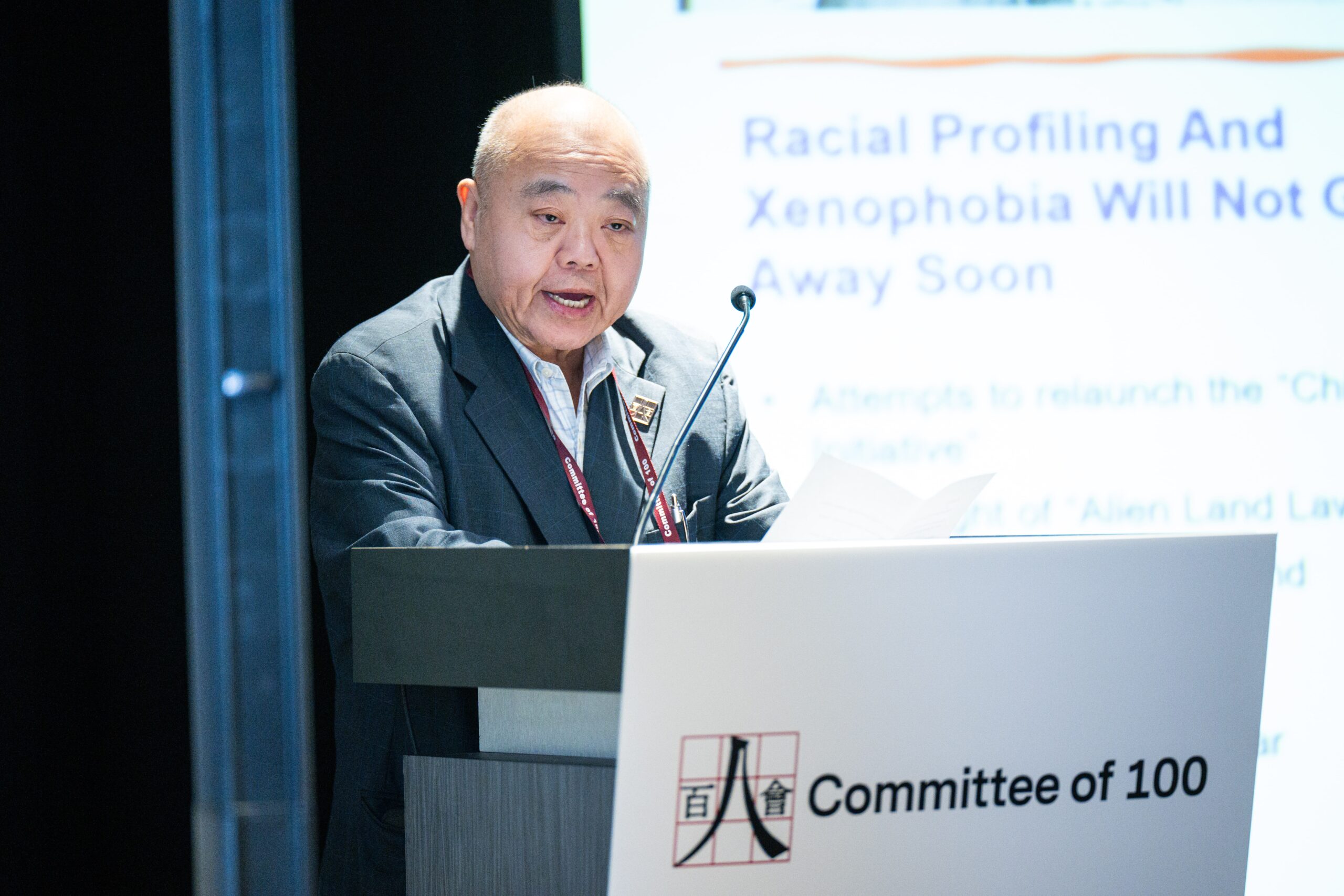 Jeremy Wu
Jeremy Wu
Asian American Career Ceilings – Findings and Solutions
This panel discussion was led by Peter Young and consisted of Gordon H. Chang, PhD, Committee of 100 Member and Olive H. Palmer Professor in Humanities and Professor of History, Stanford University; Anne Lim O’Brien, Vice-Chair and Partner, Heidrick & Struggles; Anna Mok, Committee of 100 Member and Senior Partner, Deloitte & Touche LLP; Jackson Lu, PhD, Committee of 100 Next Generation Leader and Professor, MIT Sloan School of Management. The panel talked about the specific challenges to career advancement, drawing upon insights from research and real-world experiences, and delved into effective strategies and solutions for overcoming these barriers, with the goal to improve the career advancement of members of the AAPI community and ensuring their talents and achievements are fully recognized and rewarded.
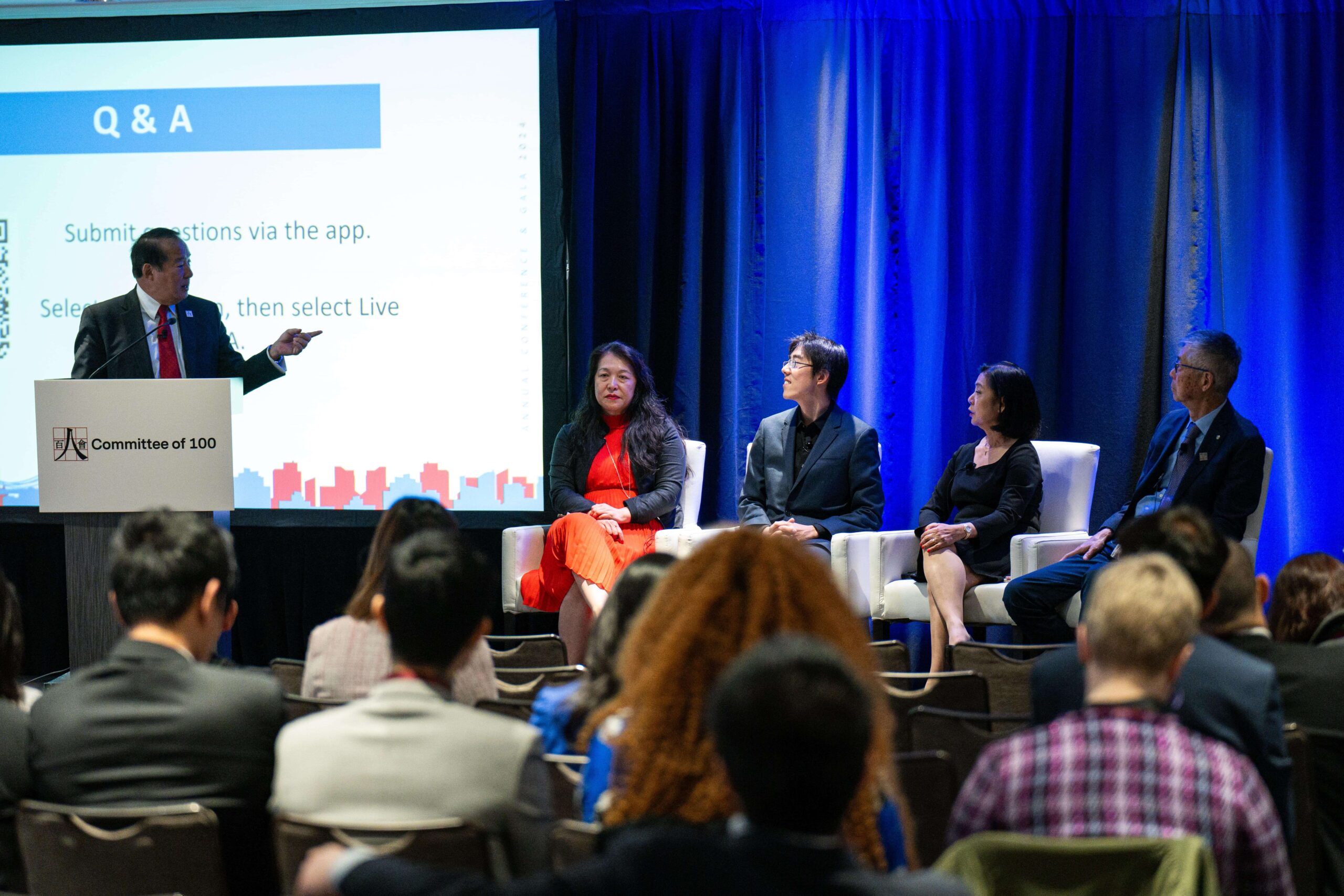 (left to right) Peter Young, Anna Mok, Jackson Lu, Anne Lim O’Brien, Gordon H. Chang
(left to right) Peter Young, Anna Mok, Jackson Lu, Anne Lim O’Brien, Gordon H. Chang
U.S. China Issues Track (Morning)
Diplomacy Through Food and Culture
This panel discussion was led by Margaret Wong, Committee of 100 Member and President and CEO, McWong International, Inc. and hosted panelists Jindong Cai, Professor and Conductor, Director, US-China Music Institute, Bard College / Conservatory of Music; Wei He, Committee of 100 Member and CEO and Artistic Director, The Tianjin Juilliard School; Martin Yan, Chef and Food Journalist, Yan Can Cook; and Maxwell Hearn, Douglas Dillion Chairman, Asian Art, Metropolitan Museum. The panelists discussed the efforts as individuals and as organizations, including cultural exchanges, that have served as conduits for peace, understanding, and cooperation amidst escalating tensions between the U.S. and Chinese governments.
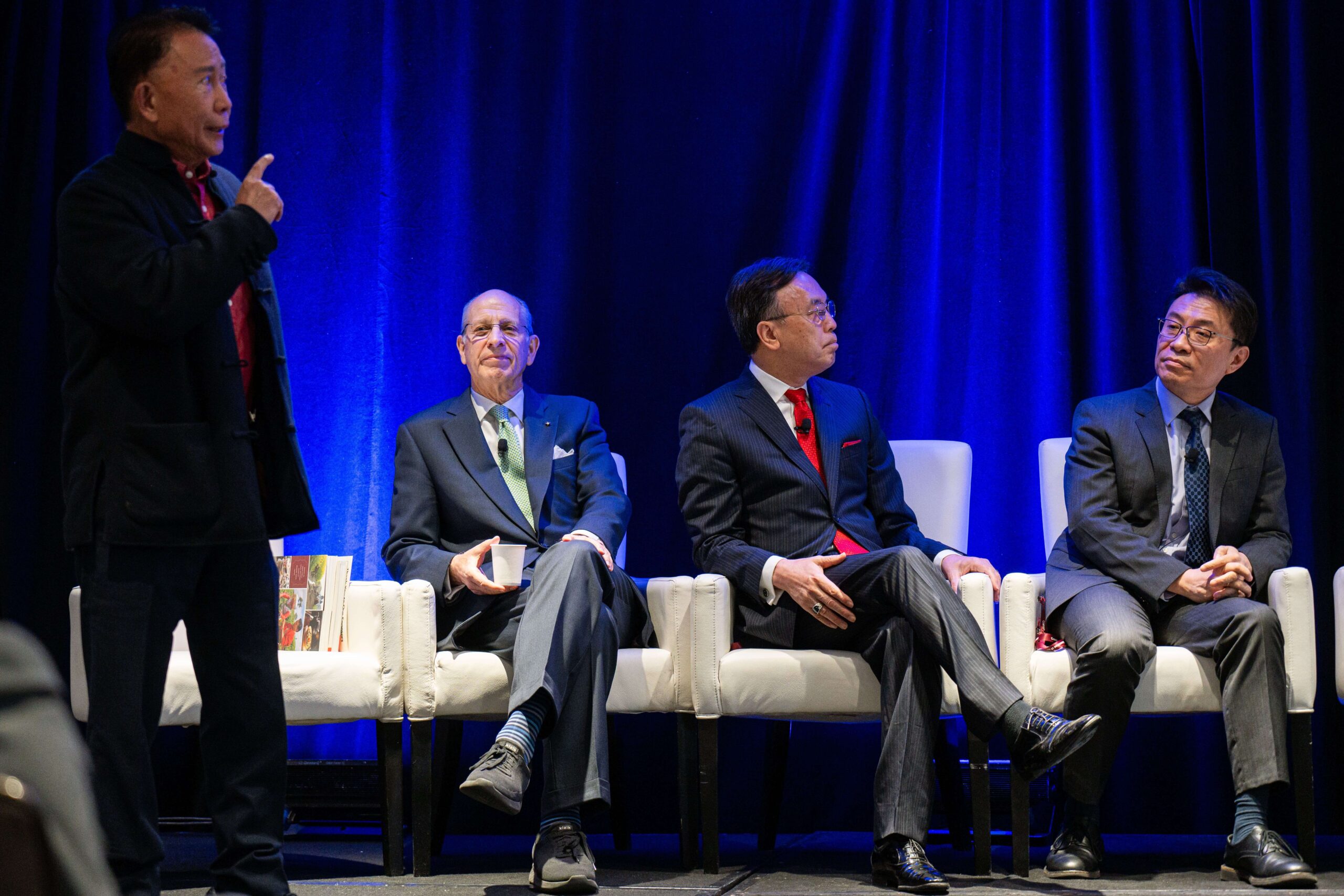 (left to right) Martin Yan, Maxwell Hearn, Jindong Cai, Wei He
(left to right) Martin Yan, Maxwell Hearn, Jindong Cai, Wei He
U.S.-China Tech and Industrial Rivalry
This panel discussion was led by Peter Young, Committee of 100 Member and Chief Executive Officer and President, Young & Partners and hosted panelists Mark Gorenberg, Chairman of the Board of Trustees, MIT and Founder and Managing Director, Zetta Venture Partners; James Kaplan, CEO & Co-Founder, MeetKai; David Li, CEO, Founder, Investor; Wendy Pan, PhD, Partner, Goodwin Procter LLP; and Paul Triolo, Global Technology Policy Lead and Senior Vice President for China, Albright Stonebridge Group. The panel of experts from a number of high-profile industries discussed the current state of competition, the actions taken by both governments to promote the success of their domestic companies, and what the future holds for the relative such of the two countries in these key technology areas.
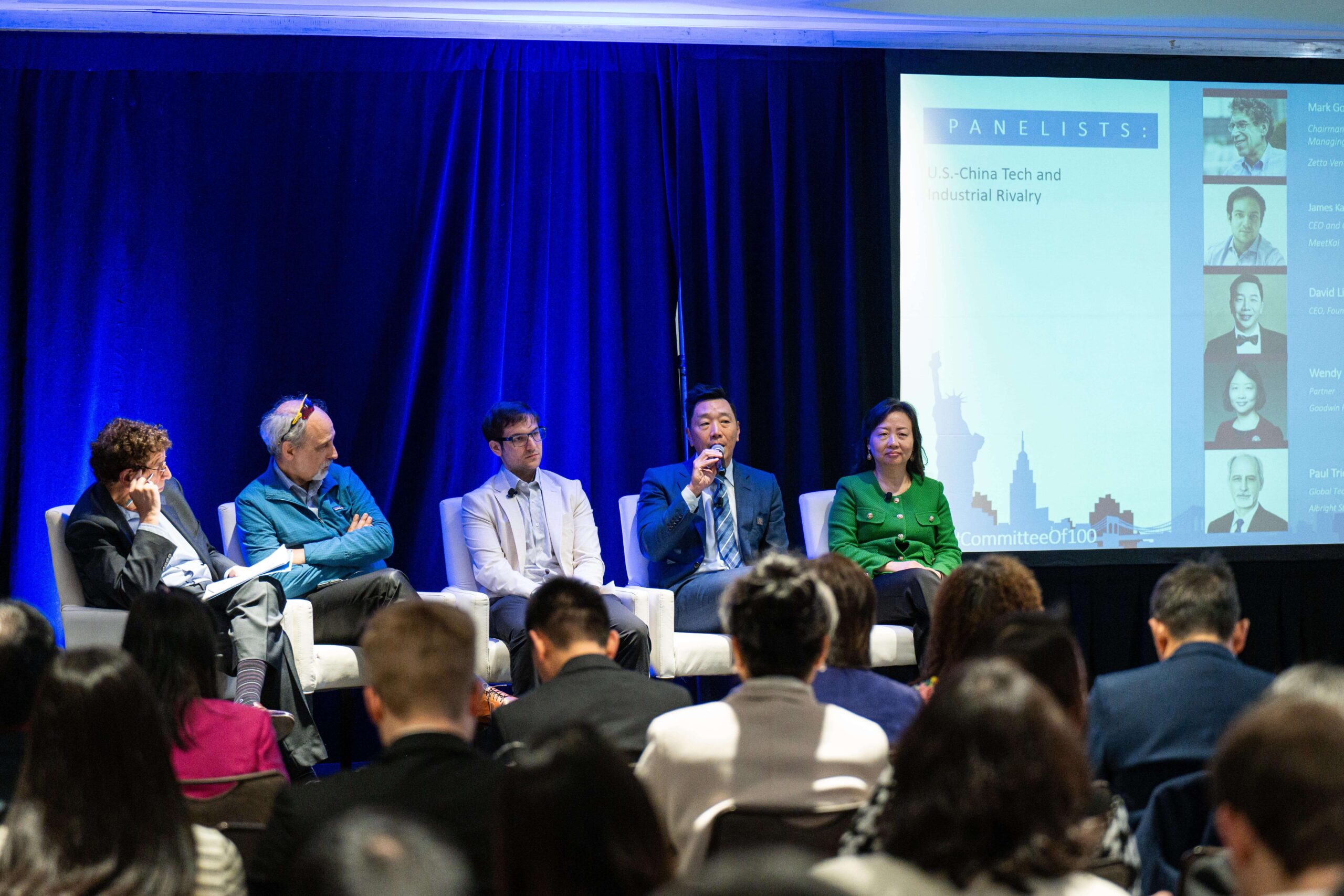 (left to right) Mark Gorenberg, Paul Triolo, James Kaplan, David Li, Wendy Pan
(left to right) Mark Gorenberg, Paul Triolo, James Kaplan, David Li, Wendy Pan
Foreign Direct Investment – Both Ways – What is Happening and Why?
This panel discussion was led by Catherine Pan, Committee of 100 Member and Partner, Dorsey & Whitney LLP and hosted panelists Craig Allen, President, US-China Business Council; Amy Lei, Vice President, Fuyao Glass America; Ganesh Iyer, CEO, NIO US; and Pin Ni, President, Wanxiang America Corporation. The panelists provided the audience with perspectives on the history of foreign direct investment between the two countries, what has been happening recently and what the competing factors will be that will drive FDI flows between the two countries in the future.
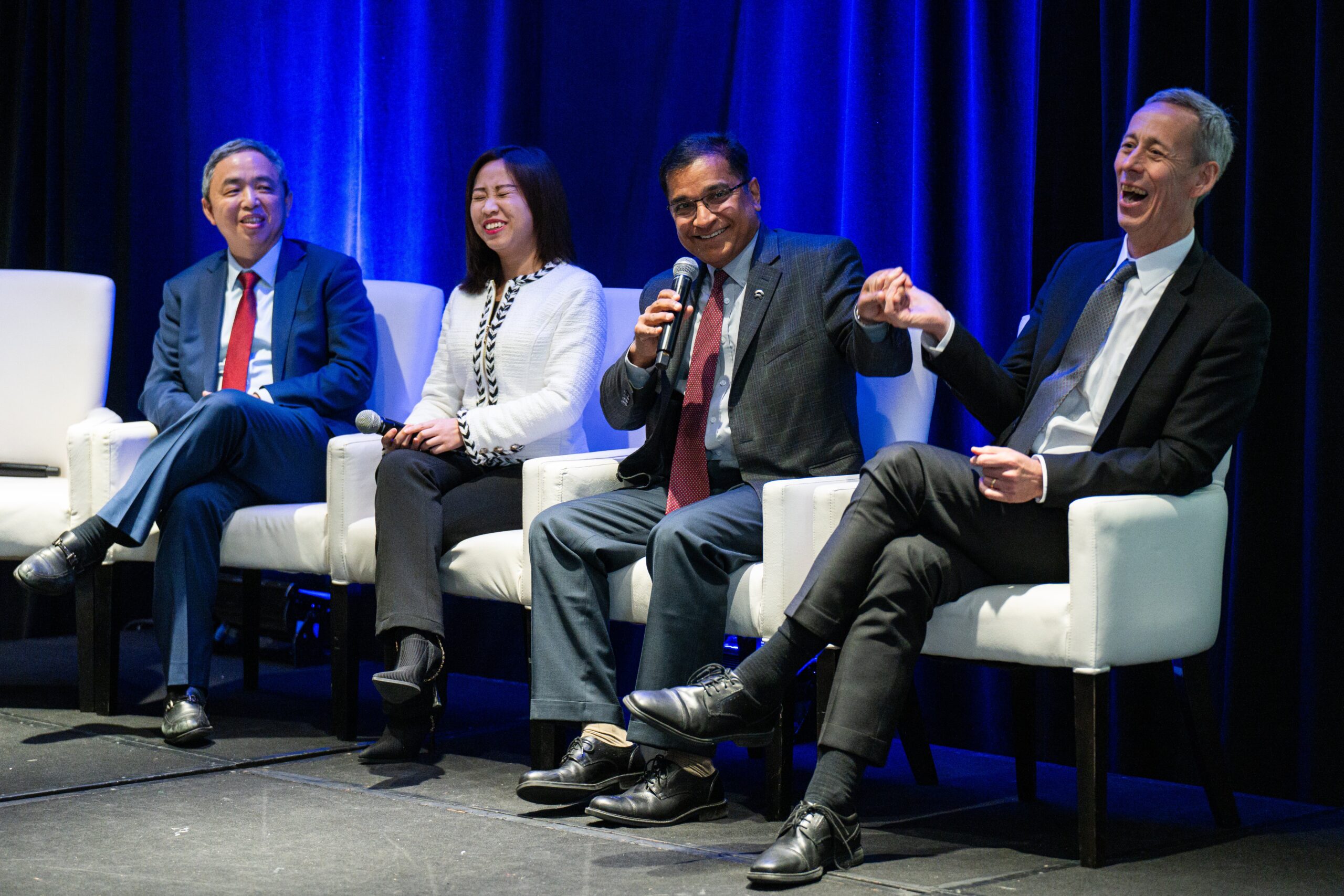 (left to right) Pin Ni, Amy Lei, Ganesh Iyer, Craig Allen
(left to right) Pin Ni, Amy Lei, Ganesh Iyer, Craig Allen
At the conclusion of the morning tracks, attendees gathered for lunch and a general session. With the upcoming elections in the U.S., we were fortunate to have Lanhee Chen, PhD, Committee of 100 Member and David and Diane Steffy Fellow in American Public Policy Studies, The Hoover Institution, Stanford University and Scott Wong, Senior Congressional Reporter, NBC. They discussed how the elections will impact Asian American communities on a national, state, and local level as well as provide their thoughts on how the parties will address issues of importance to our communities.
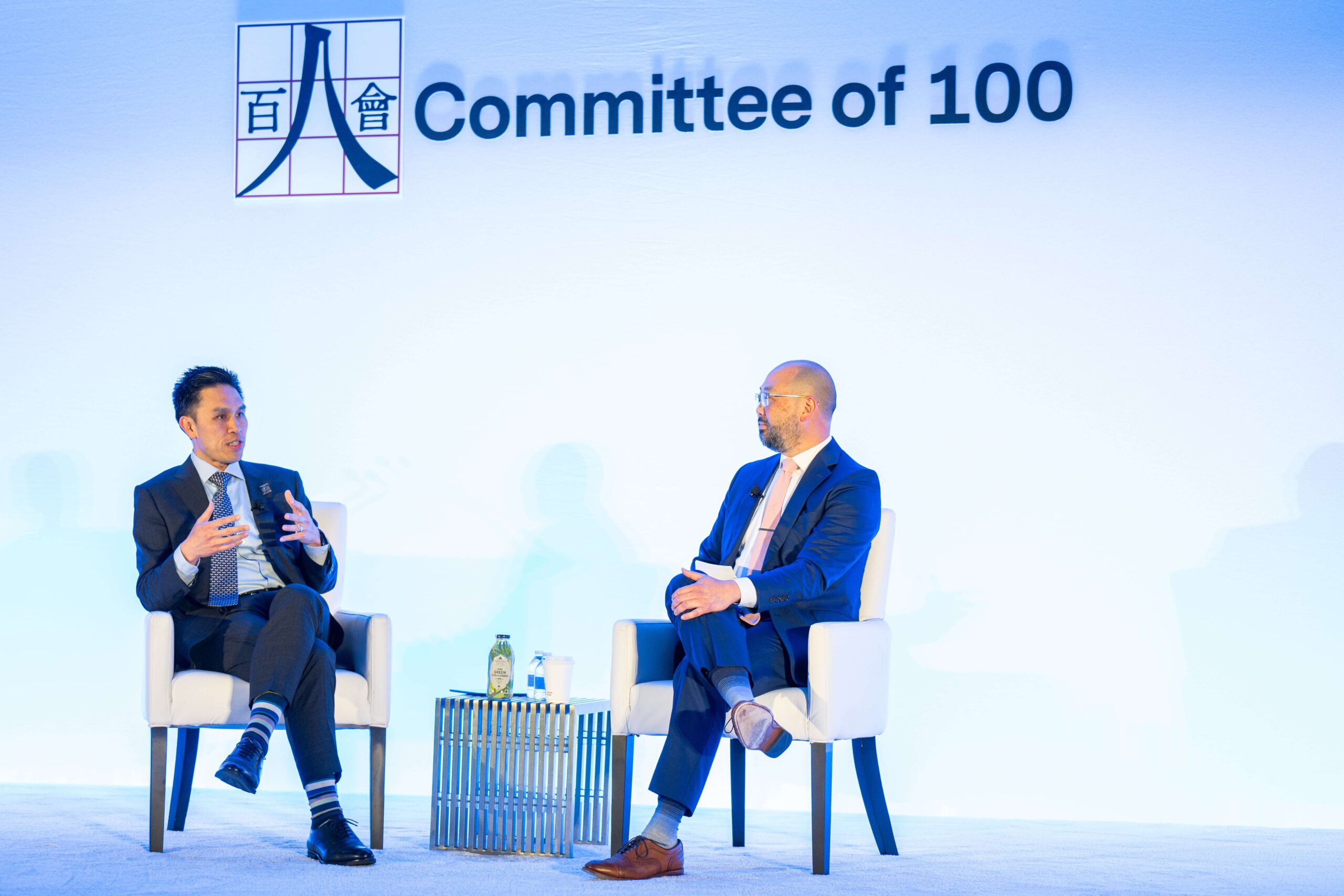 (left to right) Lanhee Chen, Scott Wong
(left to right) Lanhee Chen, Scott Wong
After lunch, the concurrent tracks continued.
Asian American Issues Track (Afternoon)
The Impact of U.S.-China Tensions on Asian Americans in Government
The panel was moderated by Paula Madison, Committee of 100 Member and Chair & CEO, 88 Madison Media Inc. with esteemed panelists Jiashen You, PhD, Chief Data Officer, U.S. Equal Employment Opportunity Commission; Chuck Rosenberg, Former United States Attorney, Eastern District of Virginia; and Carol Lam, Former United States Attorney, Southern District of California. The panelists explored the nuanced potential barriers to career advancement that spin from the tensions with China, the complexities of obtaining security clearances and the uncomfortable scrutiny regarding loyalty that Asian Americans endure due to concerns over foreign influence.
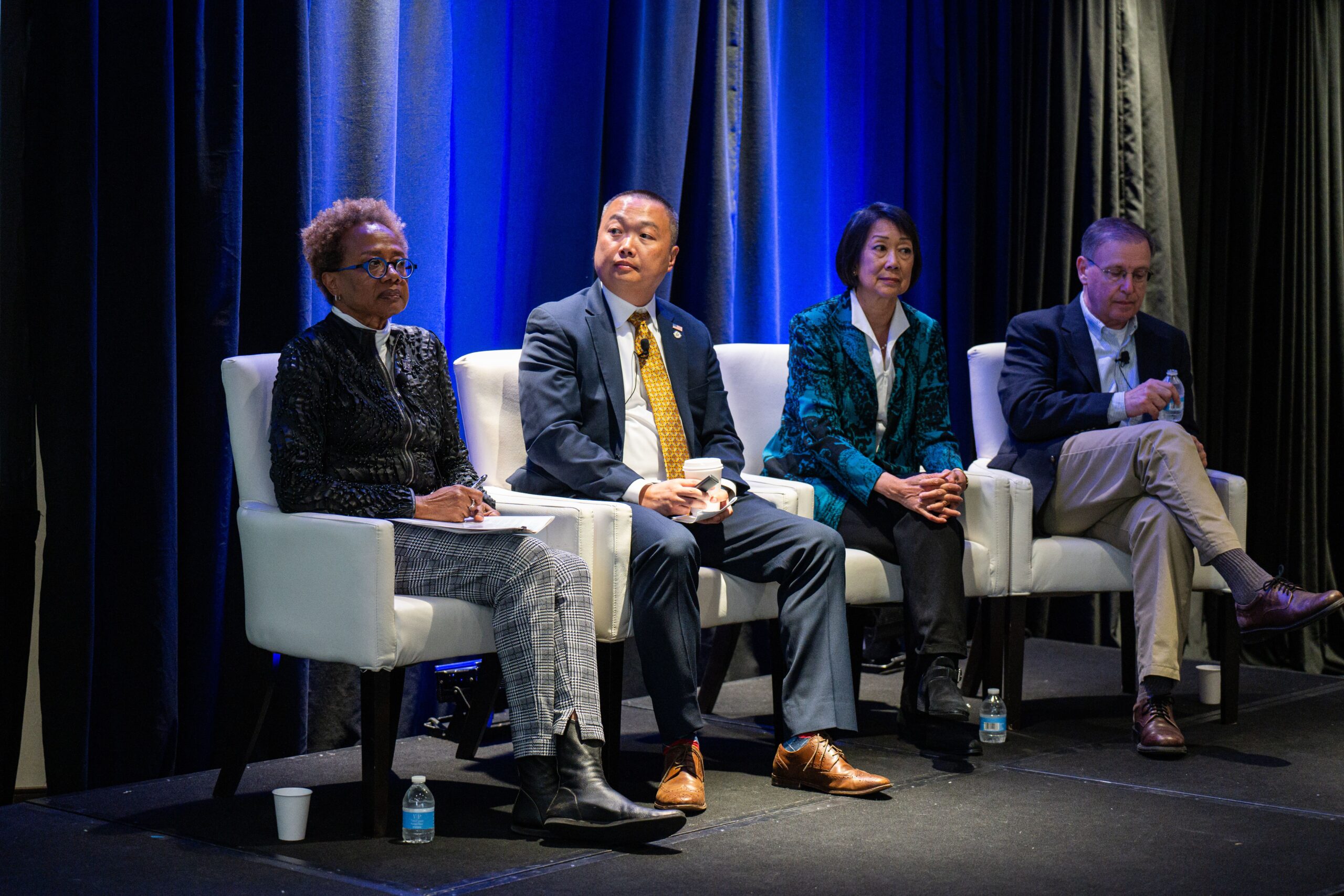 (left to right) Paula Madison, Jiashen You, Carol Lam, Chuck Rosenberg
(left to right) Paula Madison, Jiashen You, Carol Lam, Chuck Rosenberg
Asian American Awareness Through Education
The panel was moderated by Stewart Kwoh, Committee of 100 Member and Co-Founder & Co-Executive Director, Asian American Education Project with esteemed panelists Virginia Loh-Hagan, PhD, Co-Executive Director, The Asian American Education Project; Katherine Kurjakovic, ELL Specialist, United Federation of Teachers; and J. Phillip Thompson, PhD, Professor of Political Science and Urban Planning, MIT Department of Urban Studies and Planning. Through this discussion, attendees gained an understanding of the current state of AAPI education, the challenges and opportunities and the path forward to ensure that future generations recognize the rich history and contributions of Asian Americans and illuminated how education can serve as a powerful tool for combating stereotypes, fostering inclusivity, and ensuring the recognition of Asian Americans’ contributions to the nation’s fabric.
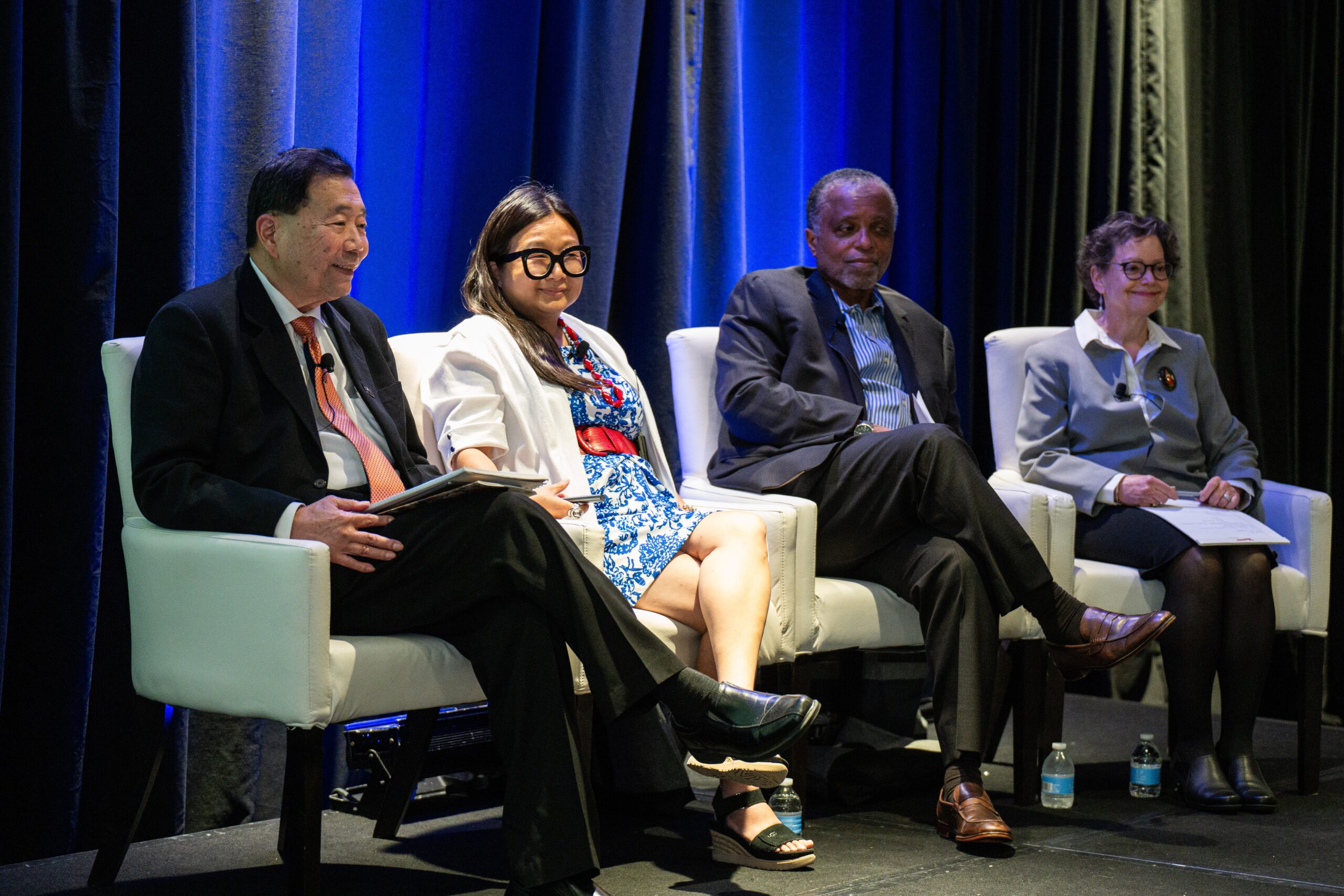 (left to right) Stewart Kwoh, Virginia Loh-Hagan, Phillip Thompson, Katherine Kurjakovic
(left to right) Stewart Kwoh, Virginia Loh-Hagan, Phillip Thompson, Katherine Kurjakovic
U.S. China Issues Track (Afternoon)
Will the Chinese Economy Stagnate Like Japan’s Did?
The panel was moderated by Peter Young, Conference Chair and Chief Executive Officer and President, Young & Partners and hosted panelists Yasheng Huang, PhD, Epoch Foundation Professor of Global Economics & Management, MIT Sloan School of Management; Zoe Liu, PhD Maurice R. Greenberg Fellow for China Studies, Council on Foreign Relations; and Stephen Roach, PhD, Senior Fellow, Paul Tsai China Center, Yale Law School. The panel of leading experts took the audience through their assessment of the Chinese economy and the extent to which they feel that the Chinese economy will or will not suffer the experience that Japan experienced.
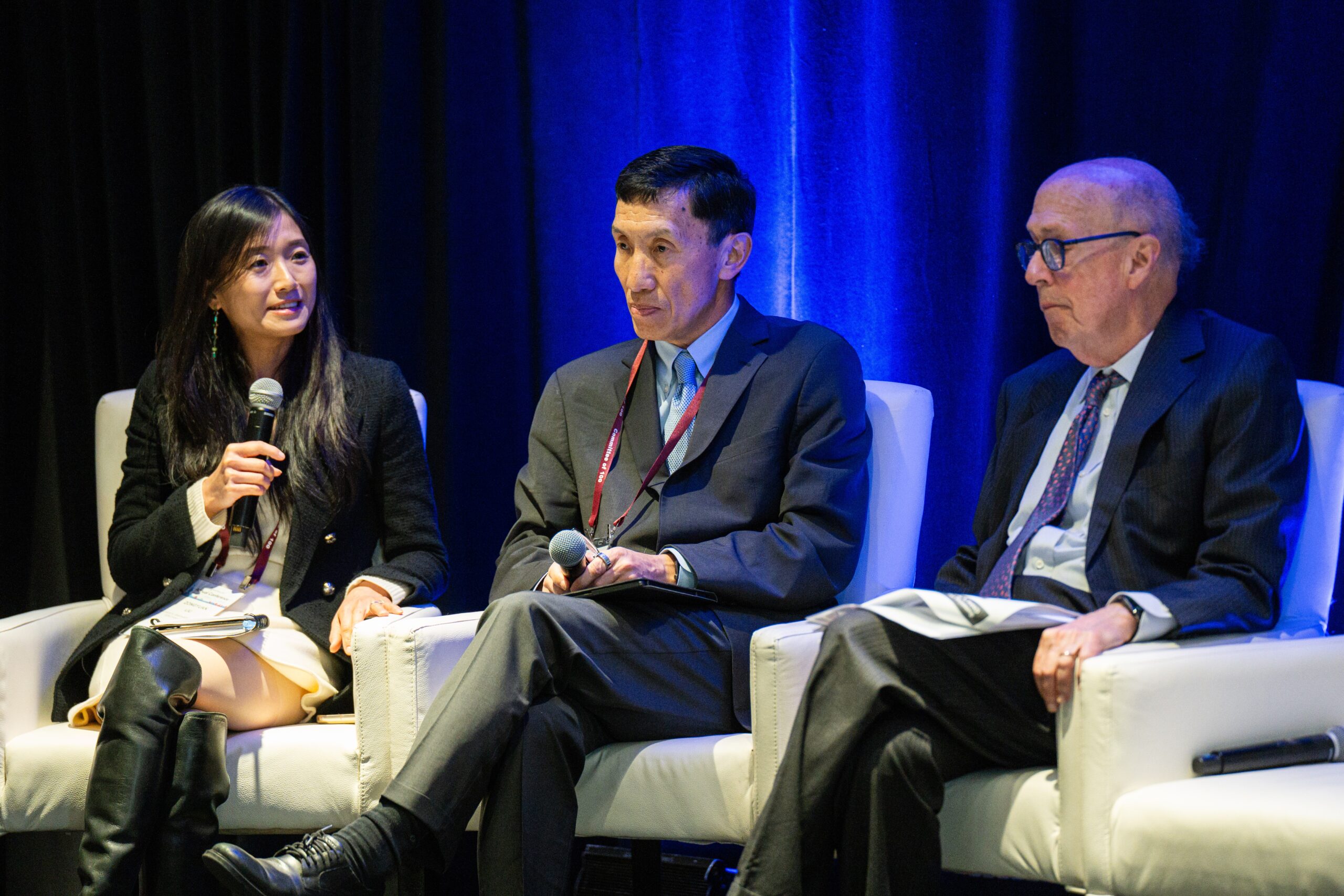 (left to right) Zoe Liu, Yasheng Huang, Stephen Roach
(left to right) Zoe Liu, Yasheng Huang, Stephen Roach
Perspectives on China by Former U.S. Ambassadors
The panel was moderated by Ambassador Gary Locke, Committee of 100 Chair, with Ambassador Max Baucus, Former United States Senator, United States Senate; and Ambassador Stapleton Roy, Former Ambassador of the United States to People’s Republic of China , joining virtually. The former U.S. Ambassadors to People’s Republic of China shared their perspectives on the state of the U.S.-China relationship, their own experiences when they were Ambassadors, and what they think the future will bring.
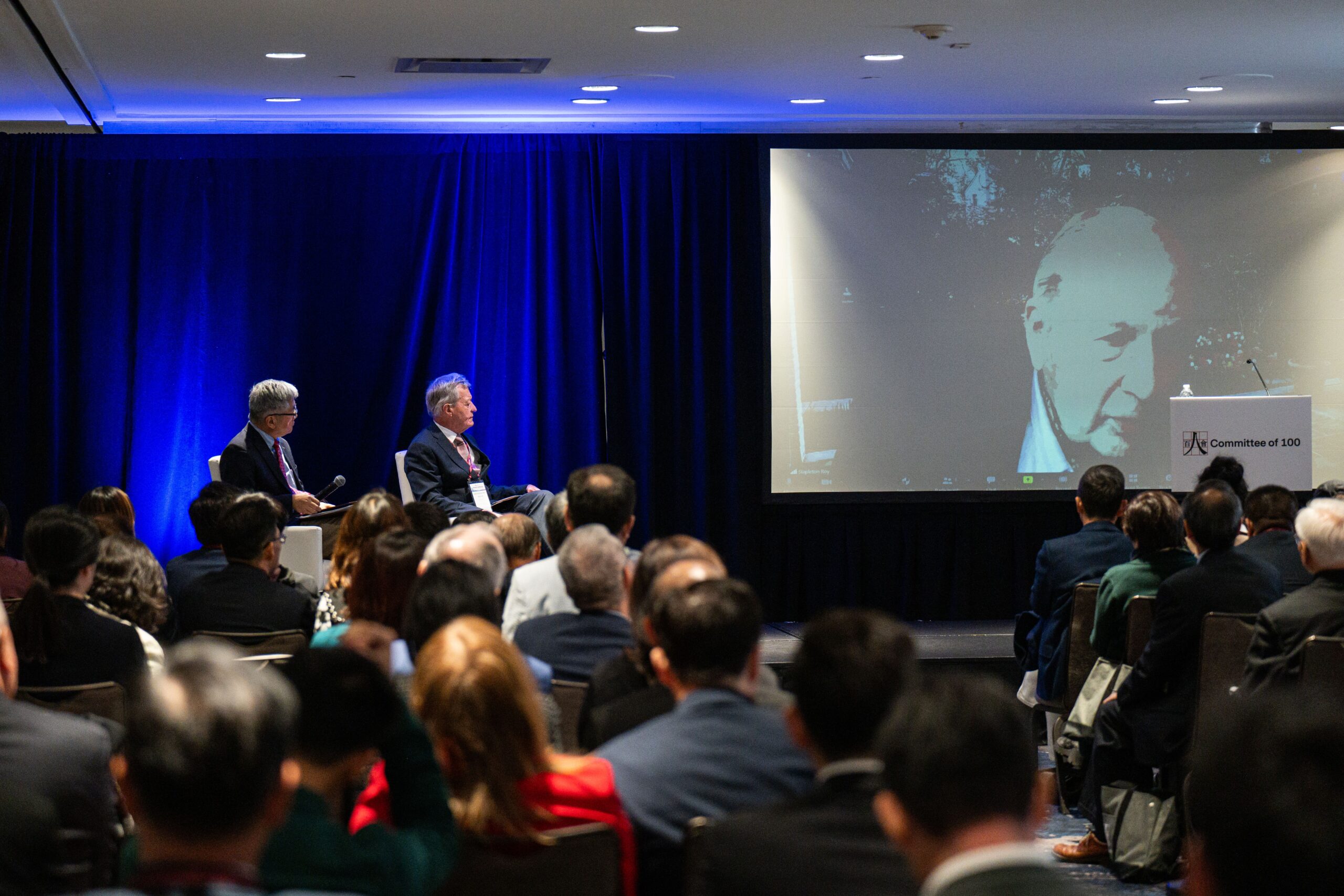 (left to right) Ambassador Gary Locke, Ambassador Max Baucus, Ambassador Stapleton Roy (on screen)
(left to right) Ambassador Gary Locke, Ambassador Max Baucus, Ambassador Stapleton Roy (on screen)
We closed out the conference with presentations from the Committee of 100 Next Generation Leaders Class of 2023, who presented their results from their year–long service projects. The session was hosted by Margaret Wong, Committee of 100 Member and President and CEO, McWong International, Inc.
The two teams from our Next Generation Leaders shared innovative solutions to ongoing Asian American issues: Assessing Barriers and Needs for New York Middle School Teachers Adopting Asian American Curriculum, and Breaking Career Ceilings and Feeling Comfortable in Your Own Skin. Presented by Sebastian Cherng, Chen Rao, Daniel Tam-Claiborne, Nicholas Lam, Jackson Lu, and Elizabeth Yap.
The project summaries can be viewed here. Committee of 100 is proud of our Next Generation Leaders and encourage participation from influential leaders in the Asian American communities.
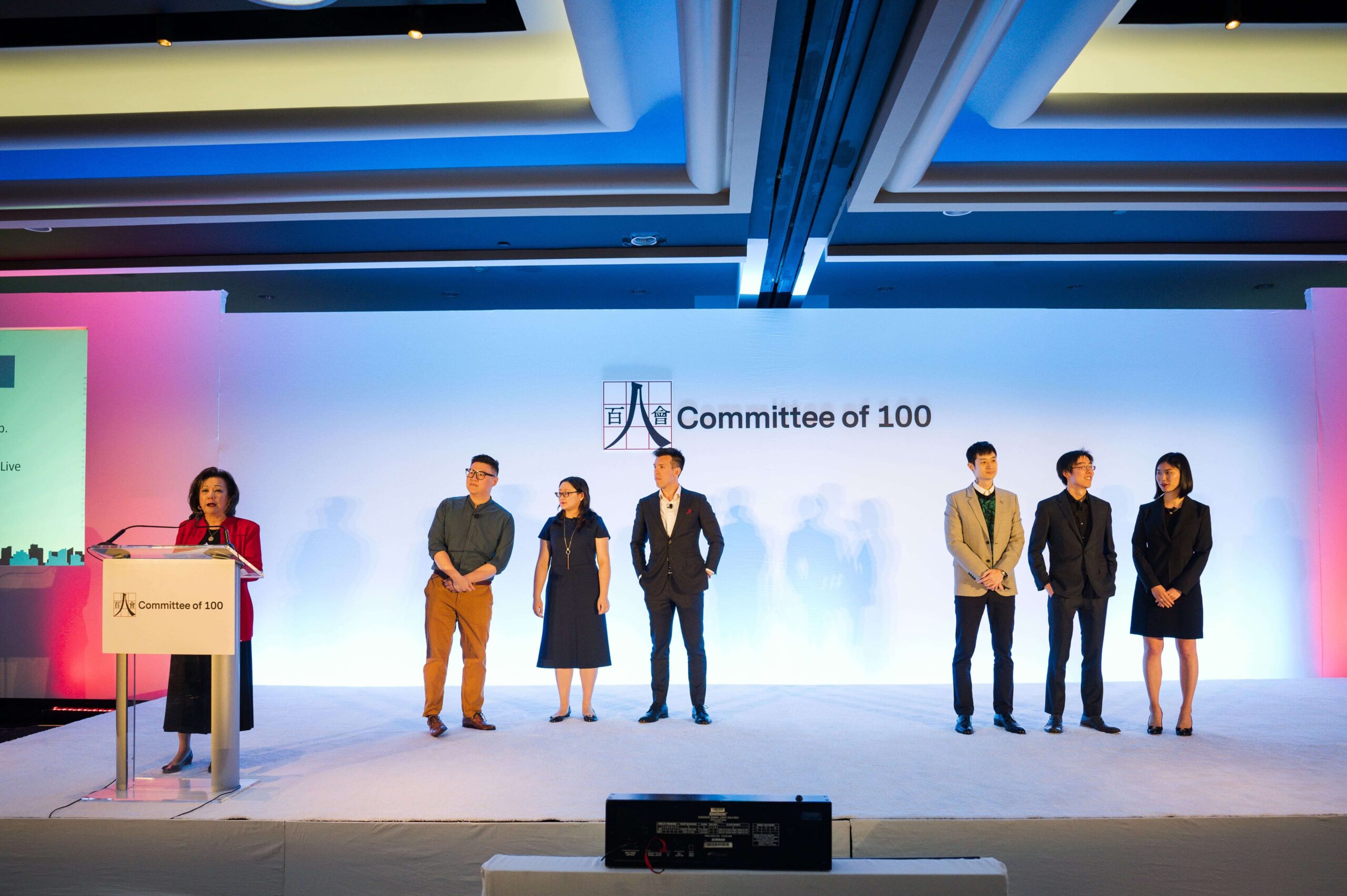 (left to right) Margaret Wong, Sebastian Cherng, Chen Rao, Daniel Tam-Claiborne, Nicholas Lam, Jackson Lu, Elizabeth Yap
(left to right) Margaret Wong, Sebastian Cherng, Chen Rao, Daniel Tam-Claiborne, Nicholas Lam, Jackson Lu, Elizabeth Yap